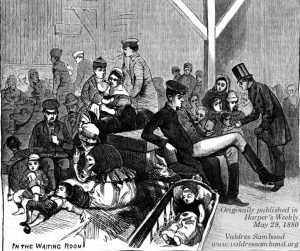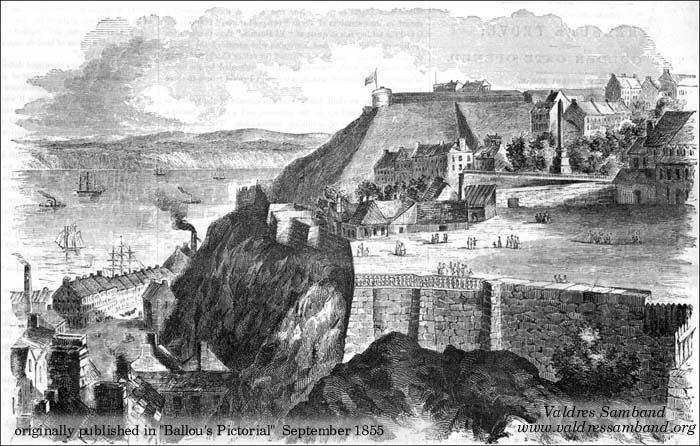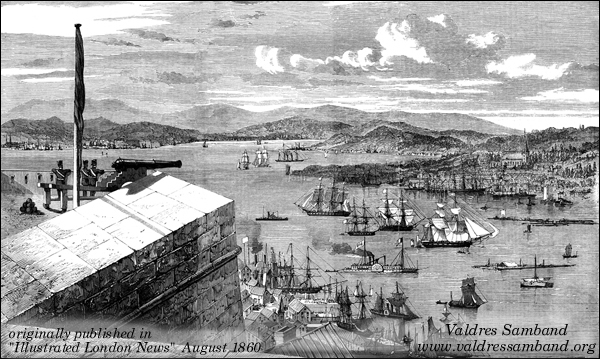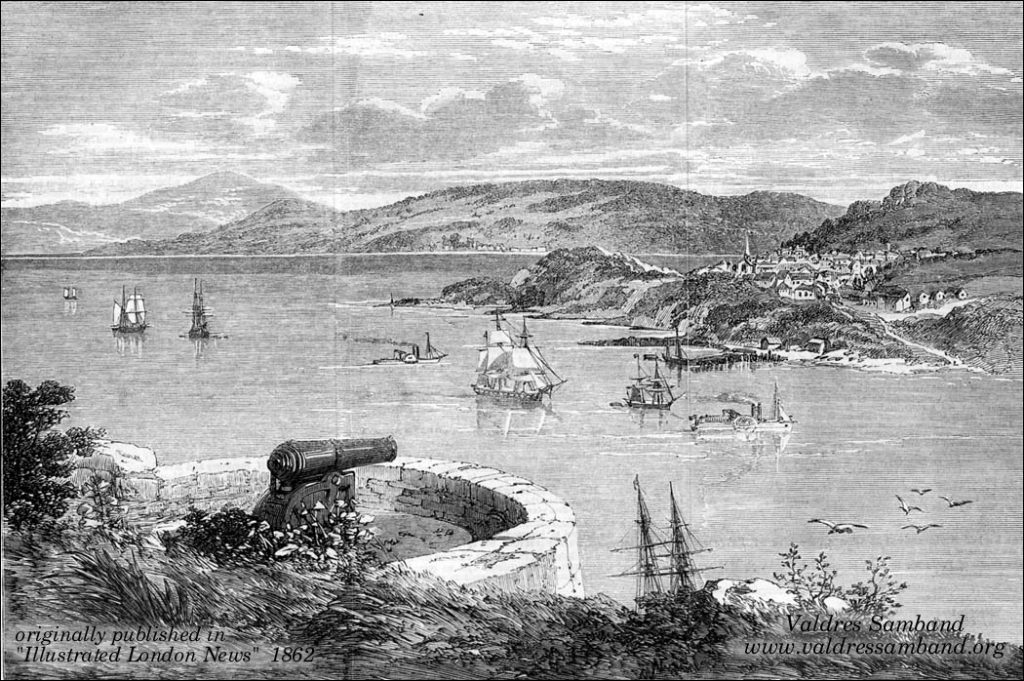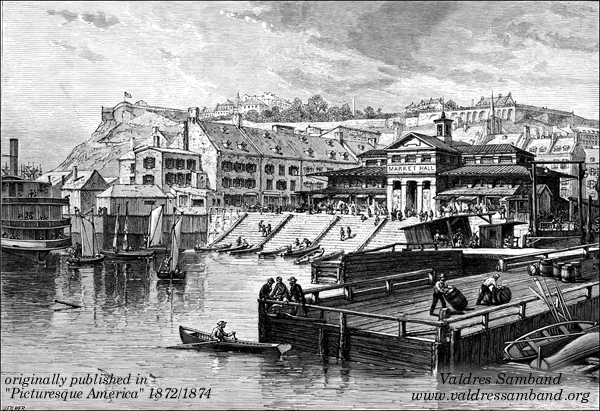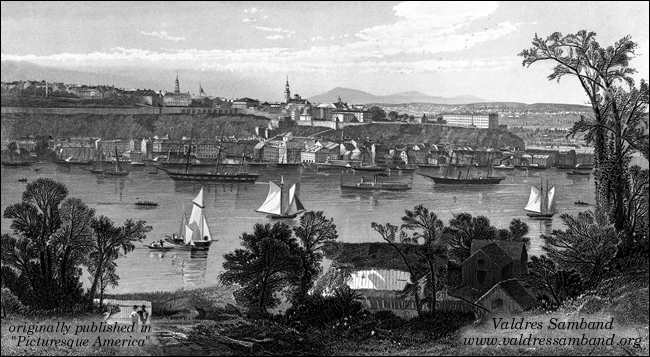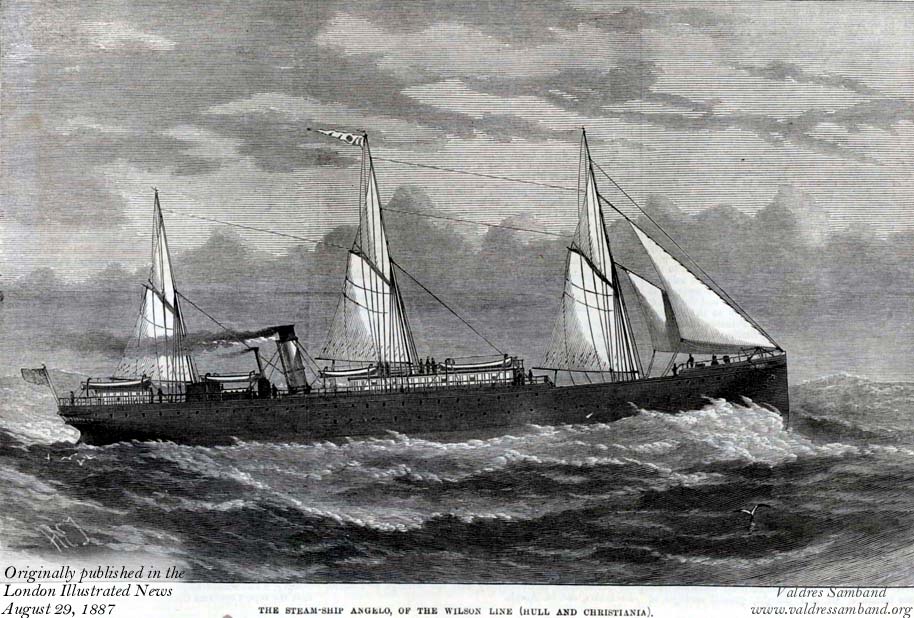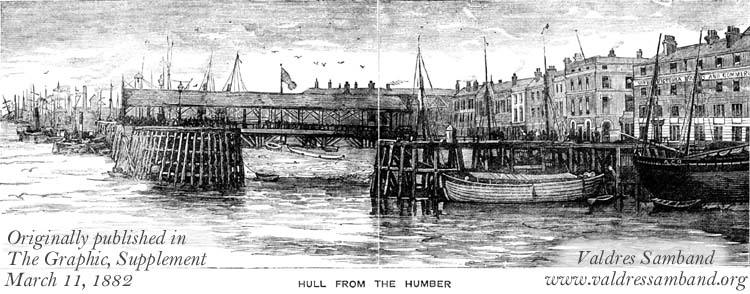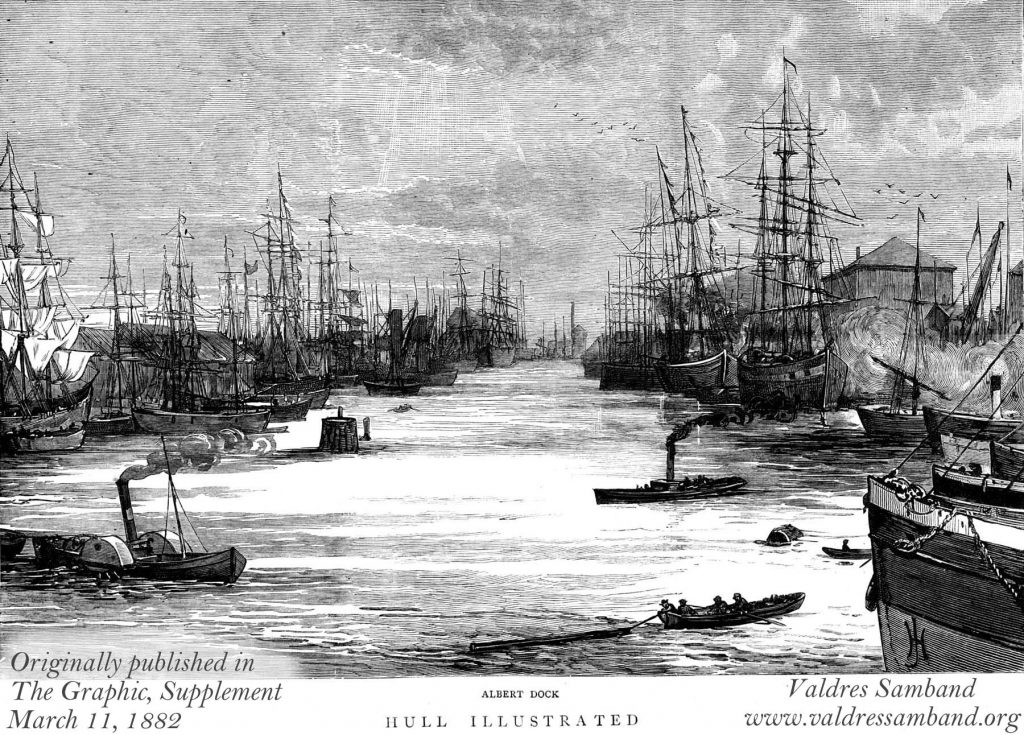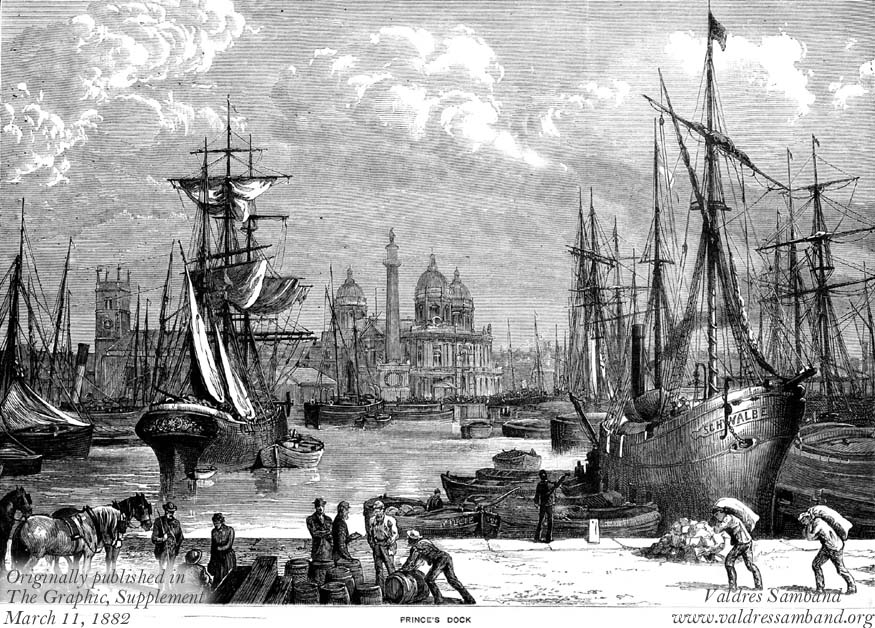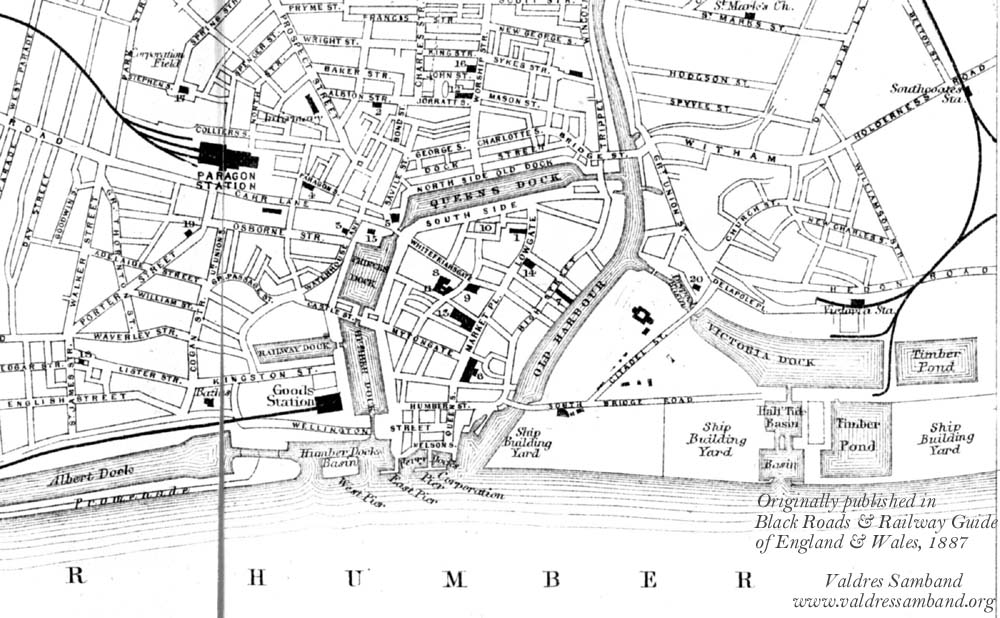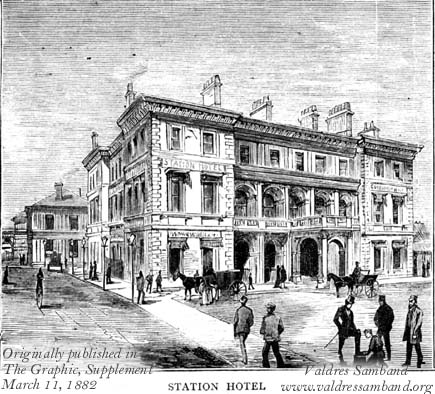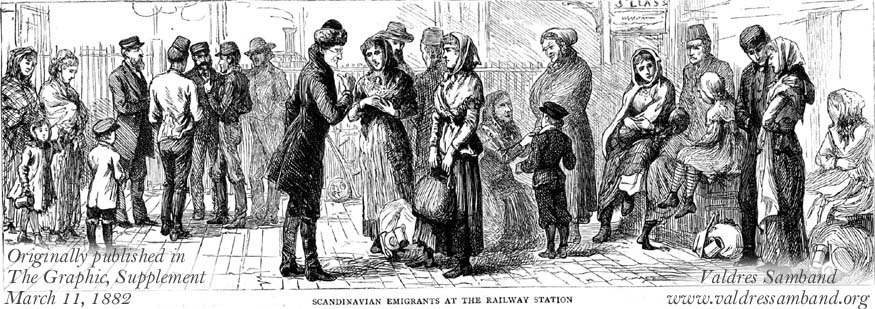By Bruce Weaver II
Emigration from Northern Europe was a subject often depicted in the illustrated newspapers and magazines of the late 19th century. The cumulative result of this fascination with “migration fever” created a treasure trove of historical imagery that captured moments in time so far removed from our present day circumstances they must be seen to be believed.
These artistic engravings were filled with incidental detail of an era otherwise long since vanished from memory. Thus many aspects of the emigrant experience of one’s ancestors were unwittingly documented in the pages of the illustrated weeklies of Boston, New York and London.
“Scenes from the Emigrant Experience” is a series of visual surveys exploring representative features and phases of travel to the New World in the late 19th century. Perhaps what will ultimately be gathered here may, in some small way, allow the viewer to virtually share pivotal highlights of that poignant journey. What you will see in this collection of imagery was directly scanned from the original pages of these historic periodicals. There are neither reprints nor web captures posted here.
Arrival in Quebec
Click images for larger sketch in new window
Castle Garden and New York
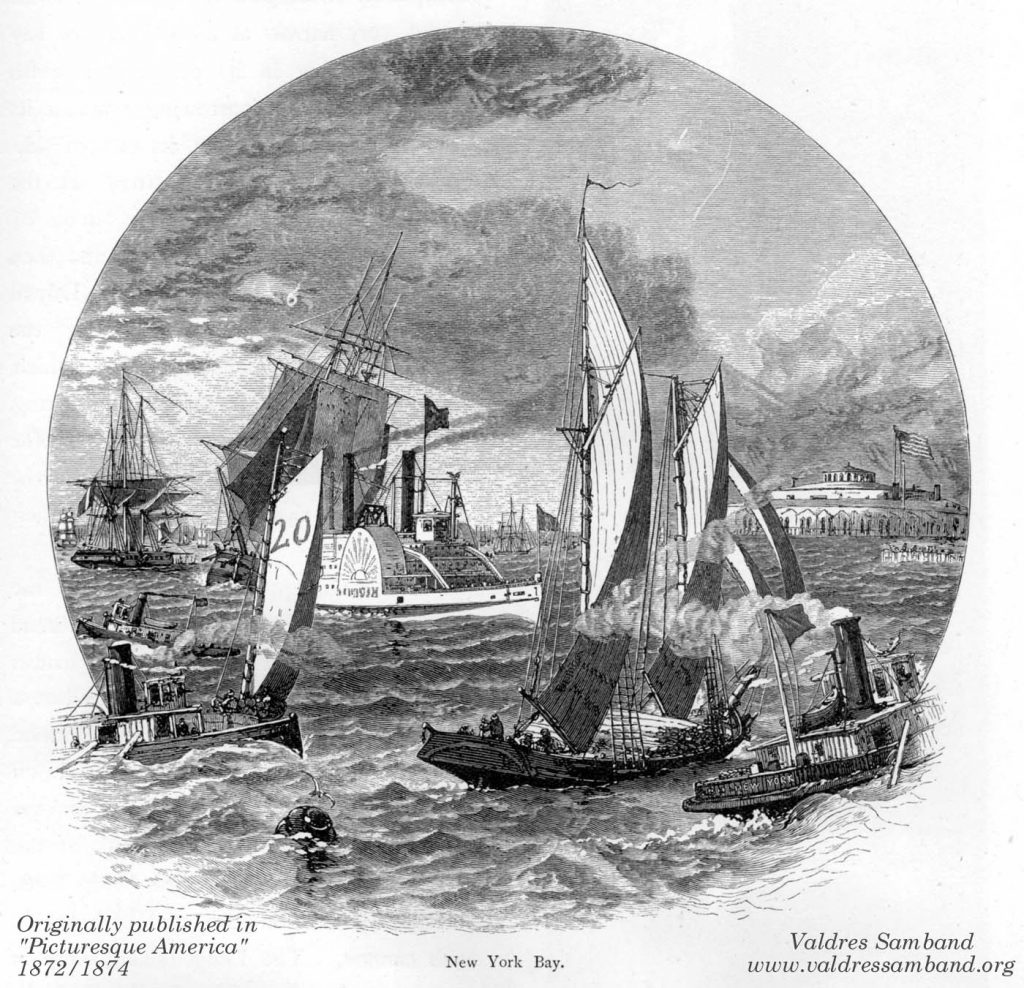
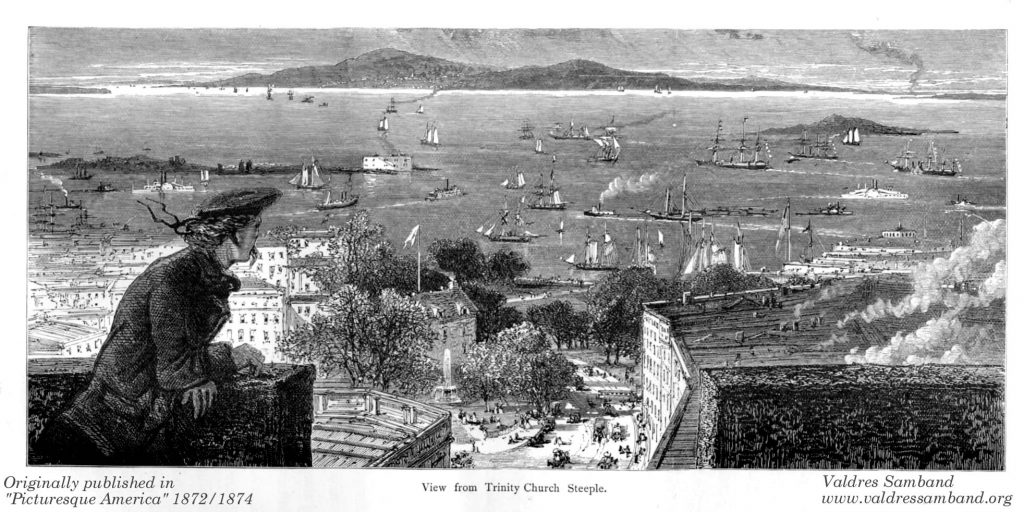
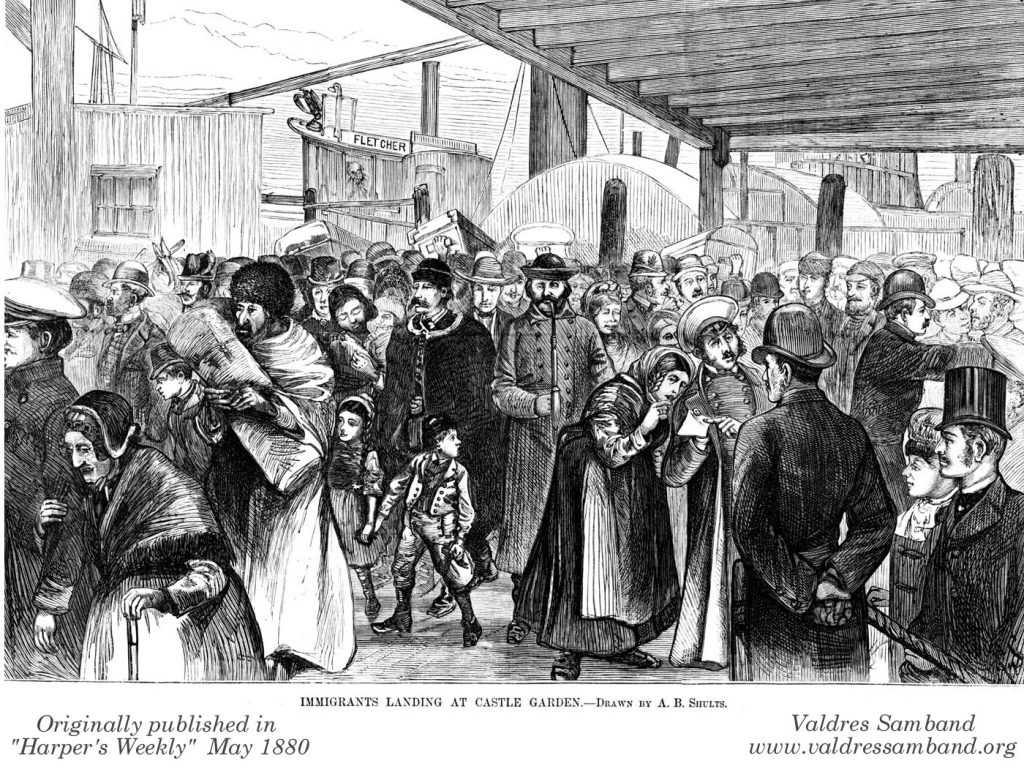
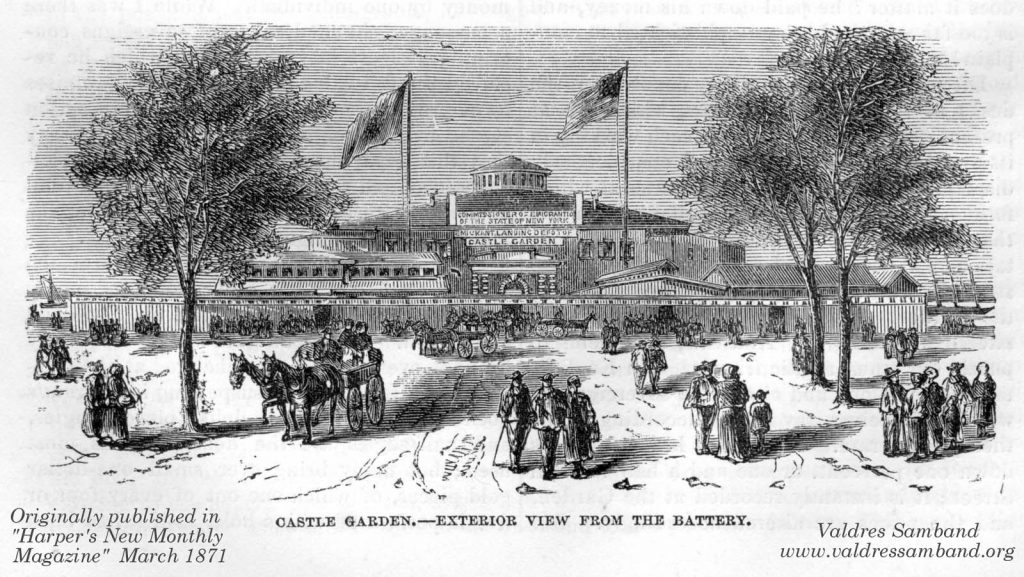
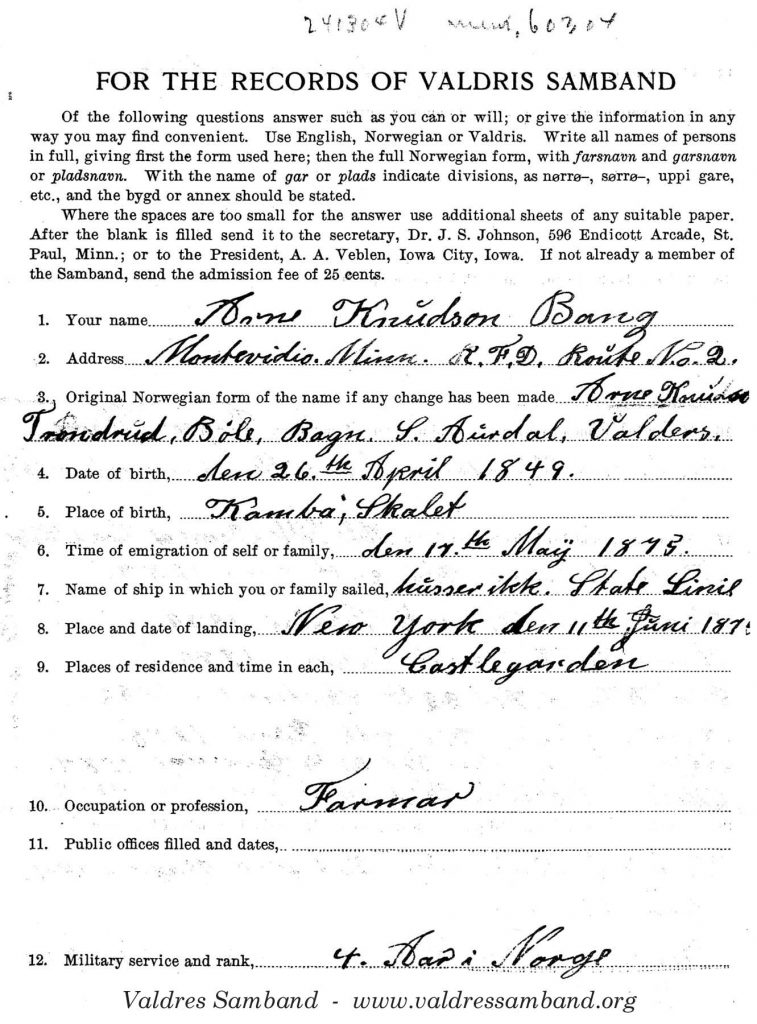
Among the Veblen papers at the Norwegian American Historical Association in Northfield, MN are hundreds of questionnaires answered by many Valdris. This treasure trove of documents on emigration has been reproduced by the Valdres Samband and is available for viewing during their annual stevner (meetings). Here is the first page of one such survey filled out by Arne Knudson Bang of Montevideo, MN. Note on lines 8 and 9 that Mr. Bang identified his point of landing as Castle Garden in New York. He reported arriving there on June 11, 1875, having left Norway on May 17, 1875—nearly a month at sea. 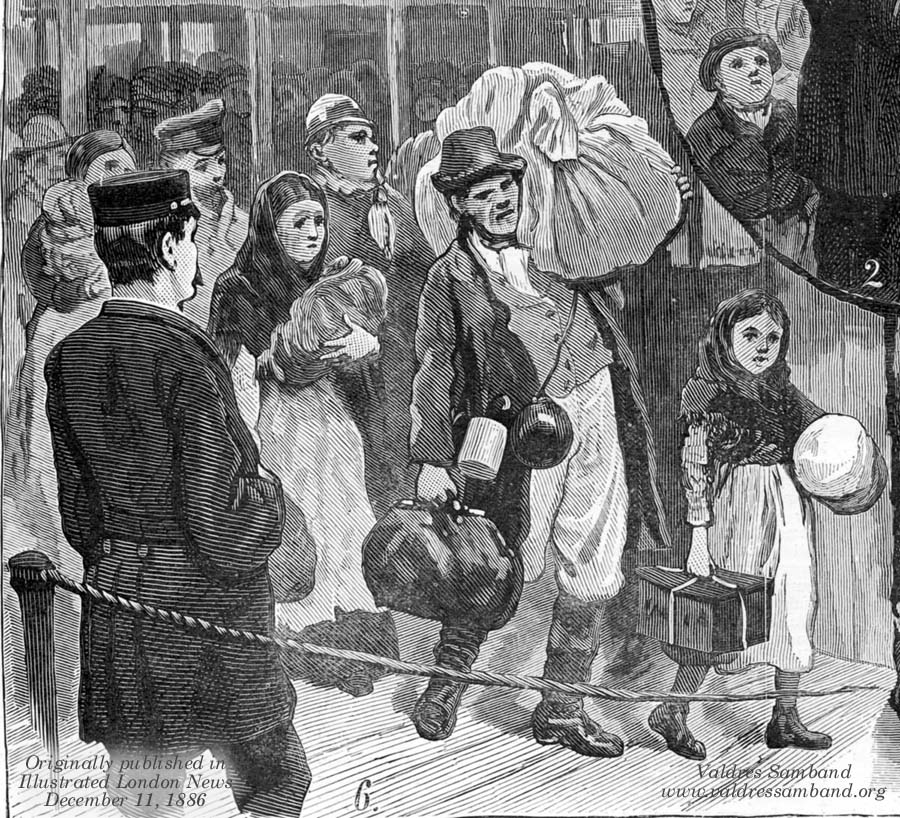
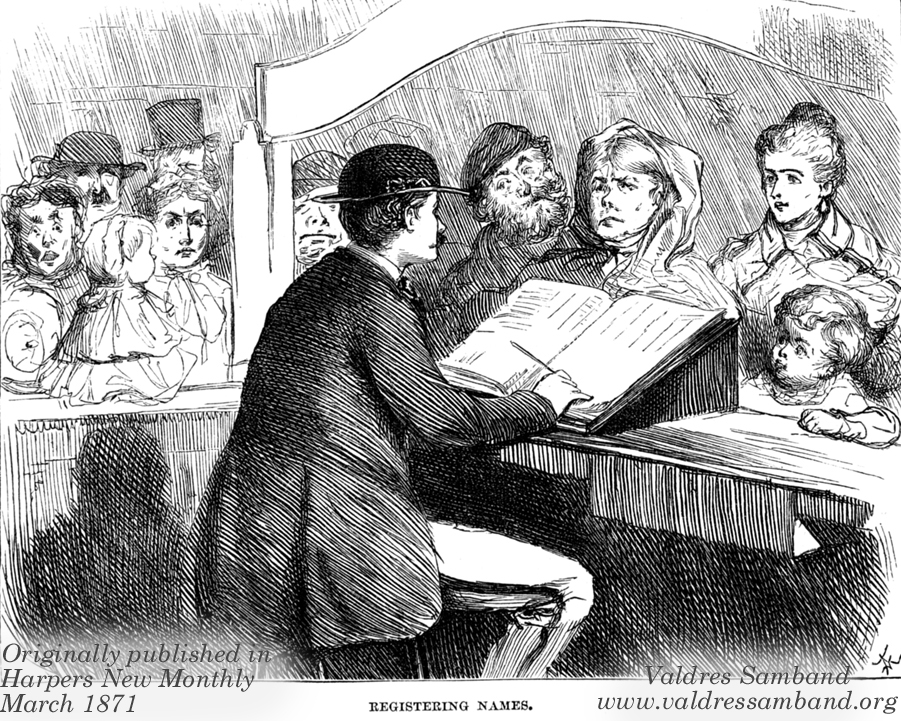
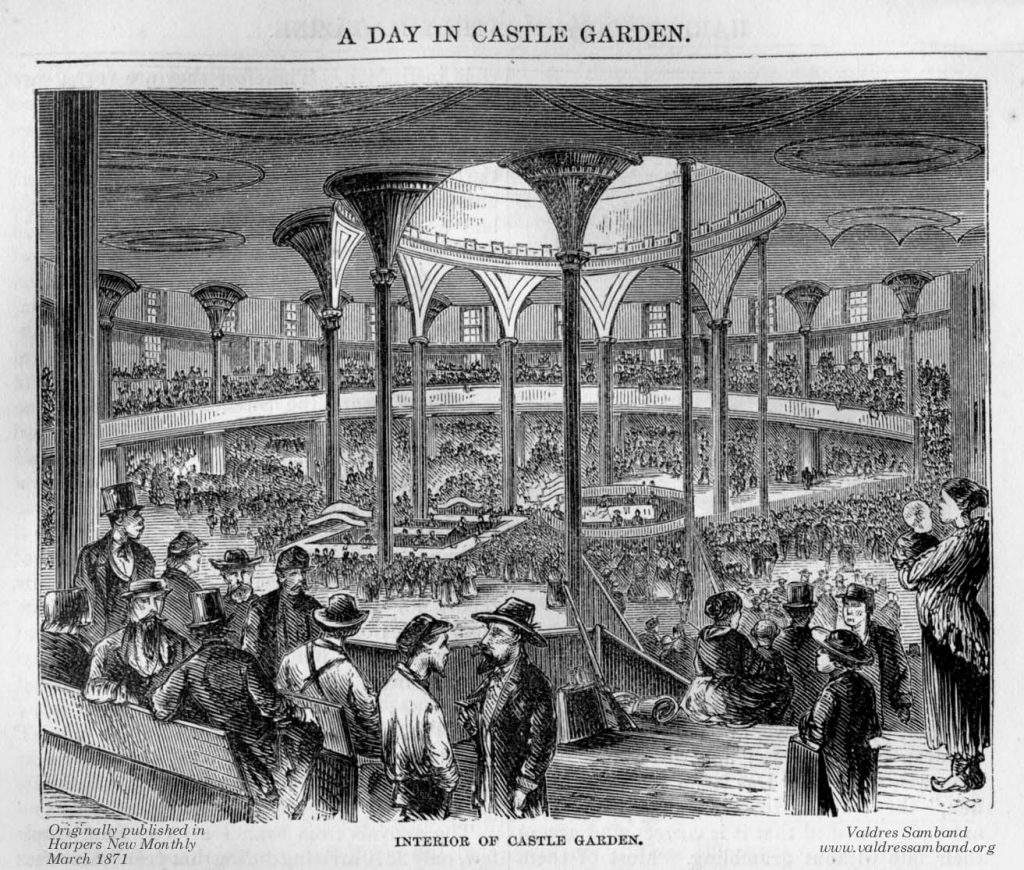
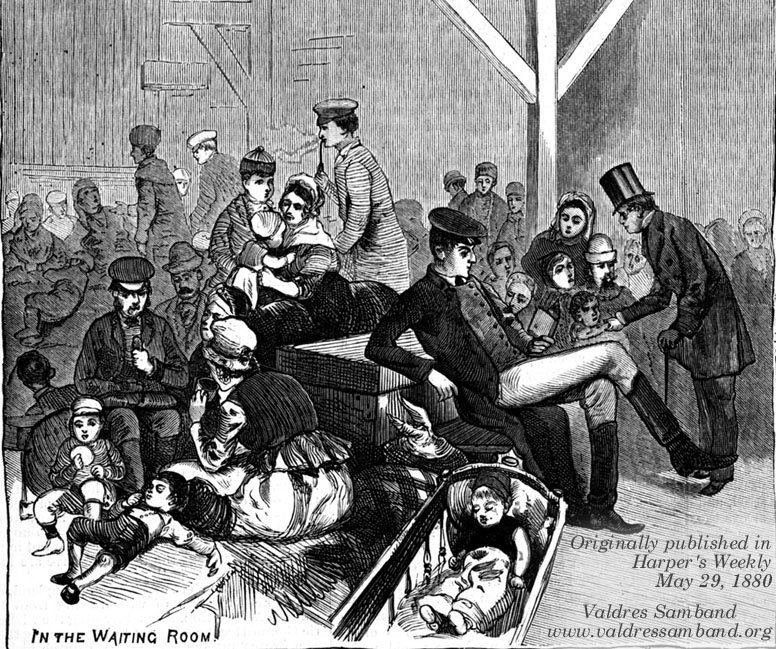
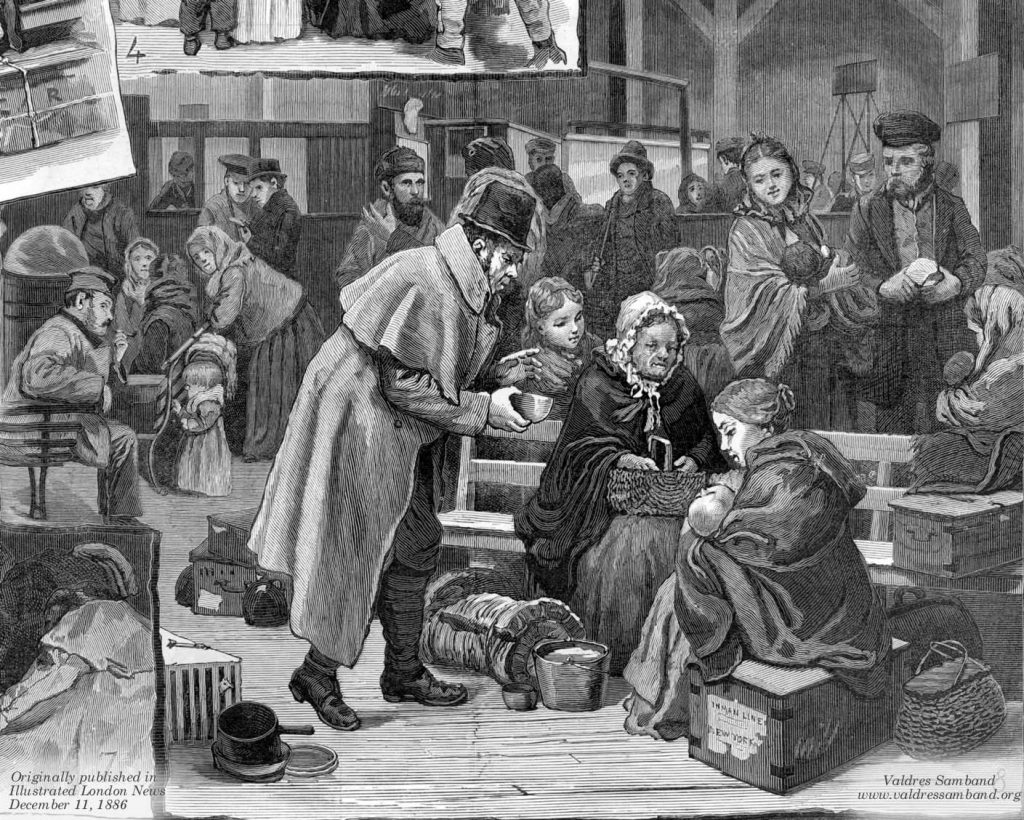
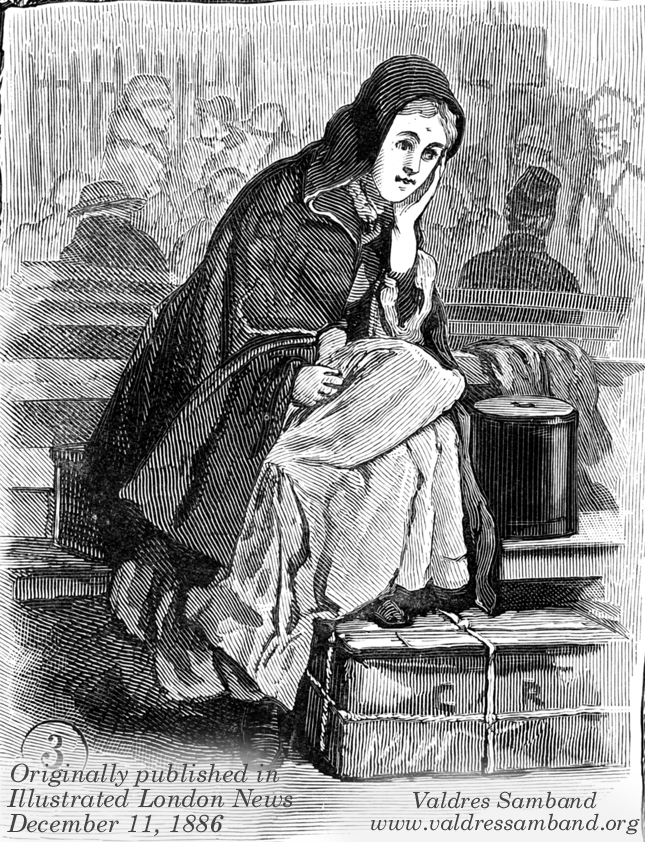
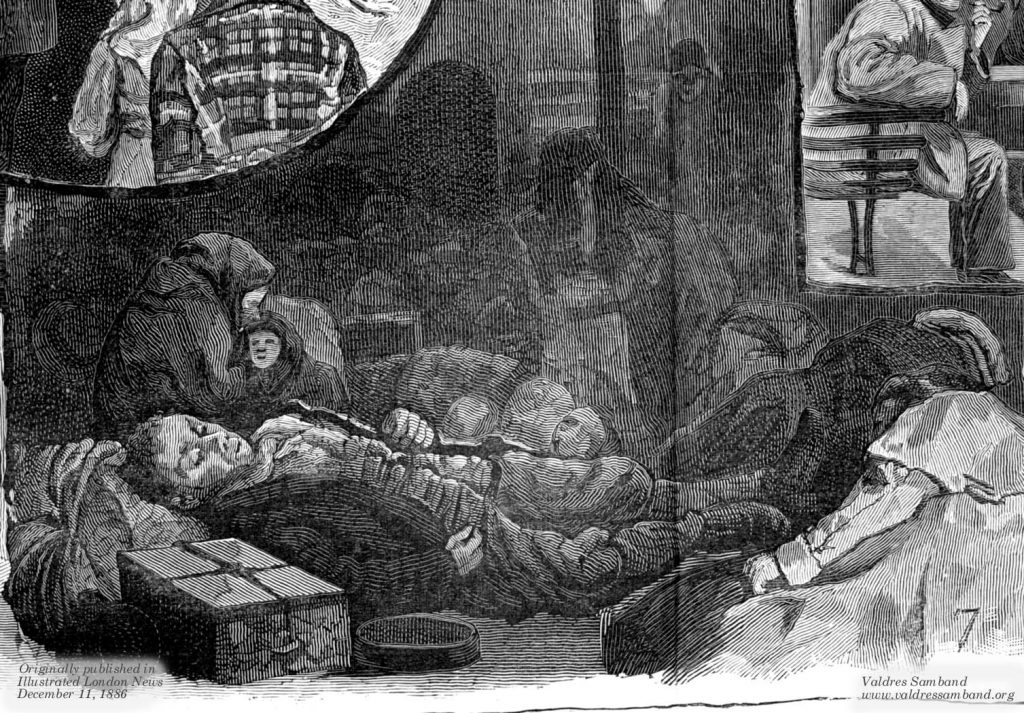
More Castle Garden
The subject of arriving emigrants waiting to be admitted into the United States at Castle Garden on the southwest tip of the Battery, Lower Manhattan, was recorded from time to time in the illustrated weeklies of the late 19th century. An article about Castle Garden in the May 29, 1880 number of Harper’s Weekly begins:
“In busy New York perhaps the busiest spot during the spring months of 1880 has been the Rotunda of Castle Garden. It is a polyglot exchange, the meeting place of the tribes of the sons of men. As many as four thousand have been received and dispatched in a single day. The volume of immigration to the United States for 1880 promises to be enormous. In 1879, the number of arrivals of aliens at the port of New York was 179,589…In the first four months of 1880 the number of arrivals has reached 81,262, or nearly half of the total of 1879. In April of this year more foreigners landed at our port then were ever known to arrive in one month…From May 5, 1847 to December 31, 1879, 5,857,025 arrived at the port of New York alone…Where do they all go? One answer to the question must be made—not to the South. Excepting Texas….Just now Minnesota absorbs the largest proportion of the strangers; then Illinois, Wisconsin, Missouri, Nebraska and Kansas…The immigrants are not by any means an inviting crowd when they arrive. They bear the marks of the rough life of the steerage. They are the world’s poor, but their condition is much above abject poverty. Despite the begrimed and tumbled look of their persons and household goods, they are full of hopefulness.”
Intermediate Port of Transition: Hull on the Humber
Many Norwegian emigrants began their epic journey to the New World with an initial landing in Hull on the Humber, on the eastern coast of Britain. From there, they would find their way to Paragon Station for the railway trip across the narrow part of the north of England to Liverpool. Leaving the landing stage on the Mersey, they would then embark “across the pond” for the ports of Quebec, Boston or New York.
